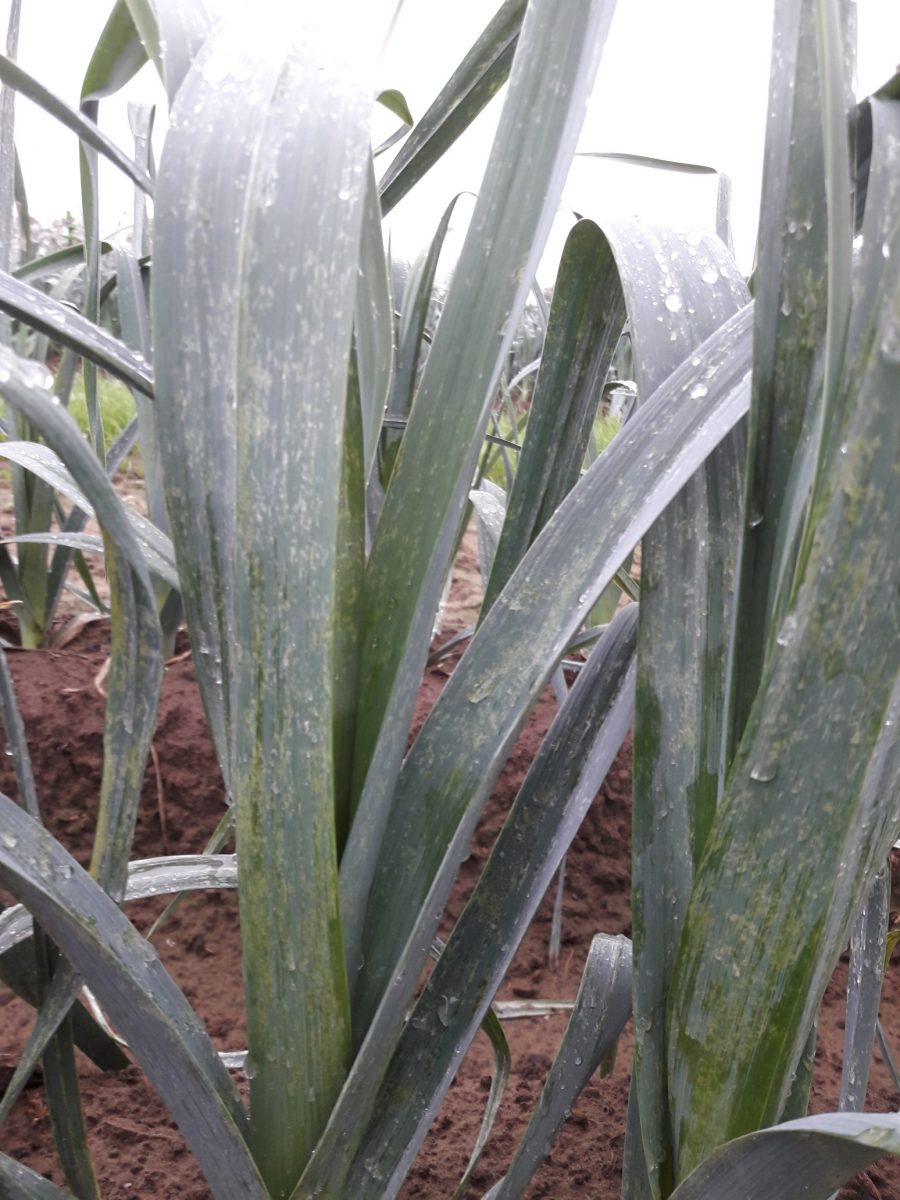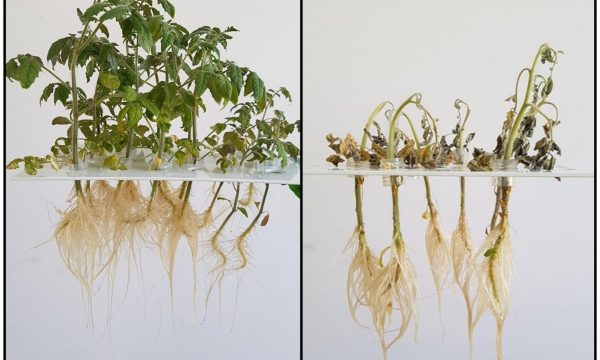Project news Management of leaf thrips in field-grown vegetables
With a new LA-traject, ILVO, PCG, Inagro and PSKW want to characterize thrips populations, improve the warning system and evaluate cultivation measures. The partners also want to sensitize consumers so that limited thrips damage to leeks and cabbages is better accepted.

The tobacco thrips (Thrips tabaci) is the main pest in outdoor vegetables such as leeks, onions, Brussels sprouts and head cabbage. This insect feeds by poking holes in the plant cell and sucking the sap from the cell. This causes silver-gray spots, and thus damage and growth retardation, leading to reduced marketability of the crop. Conventional control is difficult because the tobacco thrips has a short life cycle, and because it quickly becomes resistant to insecticides. In the field vegetable sector, there is an urgent need for an integrated control strategy, which involves the careful and reasoned use of the chemical agents that are still allowed and which focuses on prevention, pest monitoring and adapted cultivation techniques that stimulate natural enemies.
The LA project 'Integrated control of leaf thrips Thrips tabaci in field-grown vegetables' started in October 2020 and will last 4 years. The project is coordinated by ILVO and is carried out in collaboration with PCG, Inagro and PSKW. With this project we characterize the genetic structure of the tobacco thrips populations in Flanders and we evaluate the differences in resistance of these populations to the most common insecticides. In addition, we improve the existing warning system by predicting the thrips activity based on a day-degree model that is set up for the different target crops. We also evaluate cultivation measures to stimulate the population of natural enemies and to control tobacco thrips. We are investigating the use of natural enemies and their compatibility with chemical agents. We also wish to contribute to the creation of public support around making limited thrips damage to leeks and cabbages acceptable.


